NerdWallet is an advertising partner for some or all of the mortgage lenders on our site; however, this has no bearing on our ratings, lender star ratings, or the order in which lenders appear on the page. Our opinions are our own. Here is a list of our partners.

How to apply for a home equity loan
- Verify your credit score; the higher it is, the better the rate.
- Determine your home equity by taking the difference between the market value of your house and the amount you owe on your mortgage. This will tell you how much you can borrow.
- Take into account the amount of other debt you currently have. A small amount of consumer debt is acceptable, but getting approved for a credit card loan and a car loan may be difficult.
- Fill out the lender application: A lot of lenders allow you to begin the application process online by providing your financial and personal details.
- Be mindful of potential costs: A credit check, home appraisal, and loan application may all require fees.
For 40 years, Bankrate has assisted consumers in making more informed financial decisions. With our mortgage rate tables, consumers can quickly and simply compare offers from reputable lenders and receive customized quotes in less than two minutes. Although maintaining editorial integrity is our top priority, there may be references to partner products on these pages. Here is how we make money.
How to choose the best home equity loan
For home equity loans, many lenders have set loan-to-value (LTV) ratio requirements, which means that in order to be eligible, you must have a specific amount of equity in your house. Your income and credit score will also be taken into account by lenders when deciding on your rate and eligibility. A credit score of 620 or above, a maximum loan-to-value ratio of 80% or 85%, and a verified source of income are typically the minimum requirements.
Look for a home equity loan with a competitive interest rate, terms that work for you for repayment, and few fees. The loan information provided here is up to date as of the publication date, but you should definitely visit the lenders’ websites to see if there has been any updated data. Based on criteria including APR, loan amounts, fees, credit requirements, and wide availability, the top lenders are listed below.
How to choose the best home equity loan for you:
- Compare your credit score to lender requirements. Applications from borrowers with credit scores in the 600s are accepted by certain lenders but not by others.
- Weigh each lender’s combination of interest rates and fees. Both can range widely from one lender to another. The total effect of rates and fees is reflected in a loan’s annual percentage rate, or APR.
- Figure out how much home equity you have. Certain lenders allow you to access up to 90% of the value of your house. Others cap that amount at 80 percent.
- Calculate your debt-to-income ratio by dividing your monthly gross income by the total amount of your current monthly obligations. This ratio is used by lenders to assess your ability to repay the loan; some permit a higher ratio than others.
- Determine how much you need to borrow. While some lenders cap home equity loans at $100,000, others offer loans as large as $500,000.
- Employment history and employer contact details; identification or Social Security number; proof of income for the previous two years, usually from tax returns; the last two W-2 statements; the most recent pay stub; evidence of home ownership; and the home insurance declarations page
What are today’s average interest rates for home equity loans?
| LOAN TYPE | AVERAGE RATE | AVERAGE RATE RANGE |
|---|---|---|
| Home equity loan | 8.91% | 8.54% – 9.94% |
| 10-year fixed home equity loan | 9.02% | 7.78% – 9.83% |
| 15-year fixed home equity loan | 9.00% | 7.64% – 10.86% |
Bankrate gathers rate data from the top ten banks and thrifts in ten major U.S. cities in order to conduct the National Average survey. S. markets. The rates displayed above are based on a $30,000 loan or line of credit, a combined loan-to-value ratio of 80%, and a FICO score of 700.
Note: As of January 24, 2024, the aforementioned APRs are valid. Your credit score and other variables, such as whether you’re an existing customer or have auto payments set up, will determine the precise APR you might be eligible for.
National home equity loan interest rate trends
Home equity loan rates remained steady as of Jan. 24, with the average interest rate on the 15-year, $30,000 home equity loan remaining at 9 percent, as it did the week before, according to Bankrate’s nationwide survey of major lenders. The 10-year, $30,000 loan averaged 9. 02 percent, up from 9. 01 the previous week. In 2024, home equity loans might become somewhat more affordable, but a home equity line of credit might be a better option (HELOC) According to Greg McBride, CFA, chief financial analyst at Bankrate, “rates for home equity loans, the less popular fixed-rate installment loan alternative to a HELOC, will see modest declines in 2024, tilted toward the back half of the year.” Unlike HELOCs, home equity loan rates are fixed. Until you refinance, your rate will remain unchanged after your loan is closed, regardless of changes in market rates. Nonetheless, interest rates on new loans fluctuate based on the state of the economy and Federal Reserve policy. The central bank next meets on Jan. 30-31.
Best home equity loan rates in January 2024
The top providers of home equity loans provide flexible repayment schedules, affordable interest rates, and minimal fees. Finding the best deal can be facilitated by shopping around because different lenders will assess your eligibility differently. Your rate will vary depending on your income, home equity, credit score, and other factors; the most creditworthy borrowers will pay the lowest rates.
Note: As of January 11, 2024, the aforementioned APRs are valid. Your credit score and other variables, such as whether you’re an existing customer or have auto payments set up, will determine the precise APR you might be eligible for.
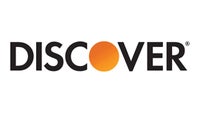
The factors that determine the Bankrate Score are availability—which includes minimum loan amounts and types—affordability—which includes introductory and minimum APRs and discounts—and customer experience—which includes online accessibility and auto-payment.
- Its APRs start at 6.24 percent.
- With Discover’s home equity loans, you can take out a loan against your home equity of up to $300,000. A loan term of 10, 15, 20, or 30 years is an option. Additionally, borrowers will not be required to pay cash at closing or origination, application, or home valuation fees. Most borrowers in the nation have access to this reliable choice.
- Customers with excellent credit receive the best rates, so you might want to look elsewhere if your credit score needs improvement. Additionally, borrowers who pay off their loans in less than 36 months might have to reimburse Discover for the up to $500 in closing costs.
BMO Harris Bank: Best home equity loan lender for different loan options

The factors that determine the Bankrate Score are availability—which includes minimum loan amounts and types—affordability—which includes introductory and minimum APRs and discounts—and customer experience—which includes online accessibility and auto-payment.
- Loan terms span five to twenty years, with amounts ranging from $25,000 to $150,000. A home equity loan from BMO Harris can be the best option for almost any financial need because there are so many ways to customize your loan to meet your needs.
- With BMO’s home equity loans, borrowers are spoiled for choice in terms of loan amounts and terms. Furthermore, you receive a 0 and there are no application fees. Get 5% off when you use a BMO Harris checking account to set up autopay.
- Although you can begin the application process online, you might need to speak with a banker to receive final approval.
KeyBank: Best home equity loan lender for homeowners with limited equity

The factors that determine the Bankrate Score are availability—which includes minimum loan amounts and types—affordability—which includes introductory and minimum APRs and discounts—and customer experience—which includes online accessibility and auto-payment.
- Finding a lender ready to give you credit can be challenging if you don’t have much equity in your house. Thankfully, KeyBank allows you to borrow, if you qualify, up to 90% of the value of your home for both a first and second mortgage.
- You can get a 0. If you have both a KeyBank savings account and a KeyBank checking account, you will receive a 25% rate discount.
- KeyBank is a regional bank that provides home equity loans in just 15 states. Additionally, there’s a $295 origination fee, and there might be additional costs for mortgage taxes, closing costs, and title insurance. The loan details provided by KeyBank differ depending on the location; this page pertains to the 80013 zip code.
Spring EQ: Best home equity loan lender for fast funding

The factors that determine the Bankrate Score are availability—which includes minimum loan amounts and types—affordability—which includes introductory and minimum APRs and discounts—and customer experience—which includes online accessibility and auto-payment.
- After Spring EQ receives the necessary paperwork, you could receive the funds for your home equity loan in as little as 11 days if you are approved.
- You are able to borrow up to 90% of the equity in your house. People with limited resources are drawn to Spring EQ because of its minimum credit score requirement of 680 and its maximum debt-to-income ratio of 50%. Plus, applicants typically aren’t required to provide proof of assets.
- Self-employed borrowers may need to provide more proof of income. Additionally, you need to have a credit score of at least 740 in order to be eligible to borrow 90% of the value of your home.
Flagstar Bank: Best home equity loan lender for flexible loan terms
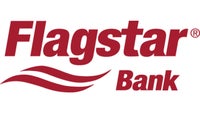
The factors that determine the Bankrate Score are availability—which includes minimum loan amounts and types—affordability—which includes introductory and minimum APRs and discounts—and customer experience—which includes online accessibility and auto-payment.
- Loan amounts from $10,000 to $500,000 have terms ranging from 10 to 20 years.
- Flagstar gives borrowers a 0. 25 percent rate discount for making automatic payments.
- Flagstar’s home equity loans are available only in bank branches. If you can fulfill the requirements and reside close to a branch, it’s a good option; if not, you might need to look elsewhere. Furthermore, loan details differ depending on the location; the loan details displayed here are based on the 49546 ZIP code.
U.S. Bank: Best home equity loan lender for low fees at a national bank
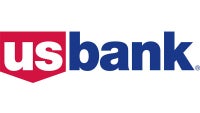
The factors that determine the Bankrate Score are availability—which includes minimum loan amounts and types—affordability—which includes introductory and minimum APRs and discounts—and customer experience—which includes online accessibility and auto-payment.
- There are no closing costs on U. S. Home equity loans from banks could help you save thousands of dollars.
- U. S. Bank offers rates starting at 6. 1 percent APR on 10- and 15-year home equity loans. These low rates include a 0. 5 percent off for people who pay automatically from the United S. Bank checking or savings accounts.
- U. S. People with credit scores of at least 730 are typically eligible for the best interest rates from banks because they tend to have stricter credit requirements. You might want to try another lender if the loan terms don’t meet your needs or if your credit needs work.
Third Federal Savings and Loan: Best home equity loan lender for customer service
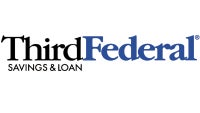
The factors that determine the Bankrate Score are availability—which includes minimum loan amounts and types—affordability—which includes introductory and minimum APRs and discounts—and customer experience—which includes online accessibility and auto-payment.
- The bank has an outstanding A- rating from the Better Business Bureau and is renowned for offering its clients practical resources like home equity calculators and mobile apps.
- U. S. Bank offers rates starting at 6. 1 percent APR on 10- and 15-year home equity loans. These low rates include a 0. 5 percent off for people who pay automatically from the United S. Bank checking or savings accounts.
- Before you apply, it doesn’t reveal eligibility requirements like a minimum credit score or income threshold. Additionally, you need to have at least 20% equity in your home in order to be eligible.
Frost Bank: Best home equity loan lender for low fees at a regional bank

The factors that determine the Bankrate Score are availability—which includes minimum loan amounts and types—affordability—which includes introductory and minimum APRs and discounts—and customer experience—which includes online accessibility and auto-payment.
- Frost does not impose annual, application, or prepayment penalties on its home equity loans. Closing costs are waived for loans ranging from $2,000 to $500,000.
- For those residing in the Lone Star State, Frost is an excellent choice. Because loans range from as little as $2,000 to $500,000 or more, it’s a good option for those who only need to borrow a small amount. Frost offers a 0. For those who set up an automatic payment from a Frost checking or savings account, there is a 25% discount.
- You’ll need to find a different lender if you live somewhere else and are looking for in-person service because this bank only has branches in Texas.
Connexus Credit Union: Best home equity loan lender for branch network
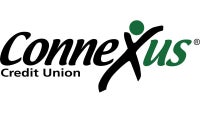
The factors that determine the Bankrate Score are availability—which includes minimum loan amounts and types—affordability—which includes introductory and minimum APRs and discounts—and customer experience—which includes online accessibility and auto-payment.
- Connexus provides services to all 50 states via a cooperative shared branch network of over 6,000 locations across the United States, in contrast to certain banks and credit unions that are restricted to a single state or area. S.
- Home equity loans can be applied for online, over the phone, or in person by borrowers. You must become a member of the credit union, but there are enough flexible membership options for most people to find a way to do so.
- In lieu of an annual fee, borrowers will be responsible for closing costs, which, depending on the location of the property and the terms of the loan, could total anywhere from $175 to $2,000.
Regions Bank: Best home equity loan lender for customer experience

The factors that determine the Bankrate Score are availability—which includes minimum loan amounts and types—affordability—which includes introductory and minimum APRs and discounts—and customer experience—which includes online accessibility and auto-payment.
- Because Regions Bank continuously receives excellent ratings from multiple consumer rating agencies, it was included on our list.
- Low interest rates, no annual fees, flexible repayment terms, and no closing costs are all features of home equity loans. By establishing autopay from a Regions Bank checking account, borrowers may also be eligible for a rate reduction.
- Your home equity loan must be secured by a property in a state where Regions Bank has a branch, and the loan closing must take place at one of the branches. You’ll need at least $10,000 in equity. Borrowers are also responsible for a few other costs, such as five percent late fees (which, in most states, start at $29 and go up to $100). Additionally, a $15 returned check fee applies to all states.
Based on a number of variables pertaining to the lenders’ goods and services, Bankrate rates lenders on a scale of one (1) to five (5) stars, with five (5) being the highest rating, to produce a home equity lenders Bankrate Score. We evaluated every mortgage lender in three main categories in order to determine our ratings:
- The following measures of affordability are available: annual percentage rate (APR) – 80%; introductory APR – 2020%
- Accessible percentages include: licensing%20-%2050%; credit%20score%20-%2020%; minimum loan amount-%2010%; required minimum draw amount-%2010%; loan products-%2010%%20
- Experience of the borrower: Rate of transparency: 45%; convenience: 2035%; customer service: %2010%; fixed-rate options: %2010%
What is a home equity loan and how does it work?
A home equity loan is a one-time payment made against the equity you have accrued in your residence. Similar to other installment loans, you get the entire amount up front and pay principal and interest on a monthly basis for the duration of the loan in equal installments (similar to a mortgage) The majority of lenders permit you to borrow up to 80–85% of the equity in your house, which is the market value of your house less the remaining mortgage balance.
These loans typically have repayment terms of five to thirty years, with fixed interest rates. A lender may foreclose on your home if you don’t make the payments on a home equity loan because your house is the collateral.
There are numerous banks, credit unions, and online lenders offering home equity loans. These funds can be used for a variety of things, such as debt consolidation, home renovations, or the cost of further education. The amount you can borrow is determined by a number of factors, including your financial situation and equity.
The lender will inform you of your loan amount, interest rate, monthly payment, loan term, and any associated fees after evaluating your application and examining your credit. When you accept the terms of the loan, the financial institution will release the funds in one lump payment. The loan is subsequently repaid gradually with set monthly payments.
Calculating your home’s equity
The portion of your house that you own outright is known as your home equity. As you make mortgage payments or your home’s value increases over time, you accumulate equity in your house. Take the appraised value of your home and deduct your current mortgage balance to determine your home equity (and potential borrowing amount).
For (simplified) illustration, let’s say you owe $200,000 on a $400,000 house. This indicates that you own 50% of your home equity. With a home equity loan, you could borrow $140,000 if your lender permits you to take out up to 85% of the $340,000 worth of your property. To find out how much you can borrow, use a home equity calculator (like the one provided by Bankrate). Read more:
Pros and cons of home equity loans
Home equity loans work best for homeowners with set budgets because the money from the loan is paid back in one lump sum. If you want to use the money for home improvements, they’re a good option because you can deduct the interest if you use it for certain repairs, improvements, or expansions. On the other hand, the interest on a home equity loan is not deductible if you use the money for anything other than major home improvements, like paying off credit card debt or student loans.
Competitive interest rates, which are typically significantly lower than those of personal loans and cash-out refinances, are another advantage of home equity loans. Compare lenders’ rates for the best deal available.
Nevertheless, a home equity loan might not be the best option if you require money right away. Receiving money from a home equity loan may take longer than from a personal loan. Furthermore, you might have to pay high closing costs and endure a longer application procedure.
FAQ
What are the interest rates on a home equity loan?
|
LOAN TYPE
|
AVERAGE RATE
|
AVERAGE RATE RANGE
|
|
HELOC
|
9.18%
|
8.74% – 10.48%
|
How much would a $50000 home equity loan cost per month?
Example of loan payment: for a $50,000 loan with 120 months at 8 40% interest rate, monthly payments would be $617. 26. Tax and insurance premium amounts are not included in the payment example.
What is the monthly payment on a $100 000 home equity loan?
Example 1: 10-year fixed-rate home equity loan at 8. 75% In the event that you took out a $100,000 home equity loan in 2010 at a rate of 75%, you could anticipate paying slightly more than $1,253% per month for the ensuing ten years.
What is the downside to a home equity loan?
Drawbacks of Home Equity Loans: Higher Interest Rate Compared to a HELOC: Over the course of the loan, you may pay more interest since home equity loans typically have higher interest rates than home equity lines of credit. Your House Will Be Used As Collateral: Your credit score will suffer if you don’t make your monthly payments on time.
Read More :
https://www.bankrate.com/home-equity/home-equity-loan-rates/
https://www.nerdwallet.com/mortgages/mortgage-rates/home-equity-loans
